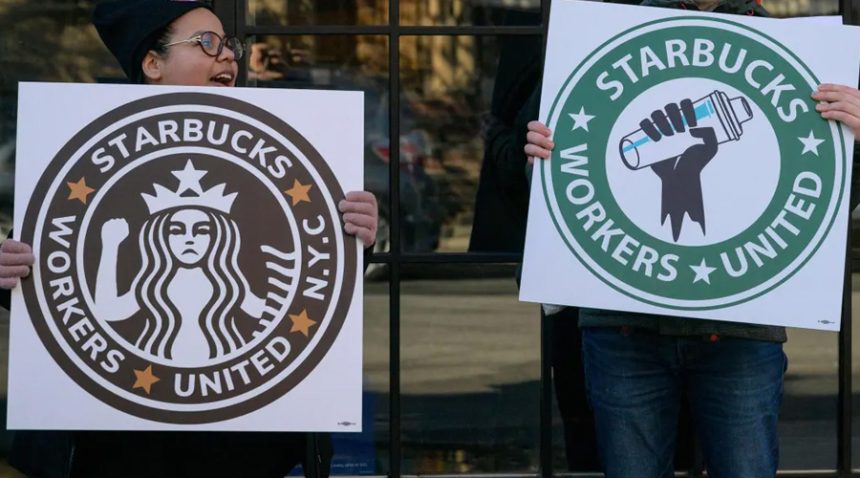Over 10,000 Starbucks workers across 300+ locations walked out during the holiday rush
The movement to unionize Starbucks baristas has gained significant momentum, with recent strikes highlighting ongoing tensions between employees and management. As of October 2024, over 11,000 workers at 500 Starbucks stores across at least 40 states have voted to unionize, primarily with Workers United.
Recent Strikes and Worker Actions
In December 2024, Starbucks Workers United organized a nationwide strike involving approximately 10,000 workers across more than 300 locations. The strike, which began on December 20 and concluded on December 24, affected stores in major cities including New York, Boston, Dallas, Los Angeles, Seattle, and Chicago. Workers protested against stalled contract negotiations, demanding better wages, improved staffing, and more predictable schedules.
Despite the scale of the strike, Starbucks reported minimal impact on its operations, stating that 98% of its stores remained open during the walkout. The company maintained that it offers competitive wages and benefits, asserting that the average pay for its workers, including benefits, equates to over $30 per hour. However, the union criticized Starbucks for not presenting a serious economic proposal during negotiations, leading to the escalation of worker actions.
Legal and Political Context
The unionization efforts at Starbucks are part of a broader trend of labor activism in the United States, with workers across various industries seeking better working conditions and fair compensation. The recent strikes at Starbucks coincide with similar actions by Amazon delivery drivers, reflecting a growing movement among workers to organize and demand recognition.
The political landscape also plays a significant role in these developments. With the election of President Donald Trump, who is perceived as less supportive of union activities, workers are intensifying their efforts to secure labor agreements before potential policy changes that could restrict union rights. This urgency has led to increased strike actions during the holiday season, a strategic period to maximize impact.
Challenges in Negotiations
Negotiations between Starbucks and Workers United have been ongoing since early 2024, yet critical issues remain unresolved. The union has accused Starbucks of failing to honor commitments made in February to reach a labor agreement within the year. Additionally, unresolved legal disputes, including numerous unfair labor practice charges filed with the National Labor Relations Board (NLRB), have further complicated the bargaining process.
Starbucks, on the other hand, contends that the union’s demands for significant wage increases are unsustainable. The company has expressed willingness to continue negotiations but accuses the union of prematurely ending previous talks. This impasse has led to a cycle of strikes and operational disruptions, with both sides seeking leverage in the negotiations.
Implications for Baristas
The outcome of these unionization efforts holds significant implications for Starbucks baristas nationwide. Successful negotiations could lead to improved wages, better staffing levels, and more predictable scheduling, addressing many of the concerns that have fueled the unionization movement. Enhanced benefits and job security could also result from a comprehensive labor agreement.
However, the ongoing disputes and strikes also present challenges. Operational disruptions during peak business periods can strain relations between employees and management, potentially impacting customer service and satisfaction. Moreover, prolonged negotiations without resolution may lead to worker fatigue and decreased morale.
Future Prospects
As the labor movement within Starbucks continues to evolve, several factors will influence its trajectory:
Political Climate: The policies of the Trump administration could affect labor laws and union activities, potentially altering the dynamics of the ongoing negotiations.
Public Support: Consumer perceptions and support for the unionization efforts may impact Starbucks’ brand image and influence its approach to negotiations.
Legal Developments: Outcomes of NLRB rulings and other legal proceedings related to unfair labor practice charges could set precedents affecting future labor relations at Starbucks and beyond.
The unionization efforts at Starbucks represent a significant chapter in the broader narrative of labor relations in the United States. The actions taken by baristas and the responses from Starbucks will likely influence labor movements in other industries, potentially shaping the future landscape of worker rights and corporate labor practices nationwide.






